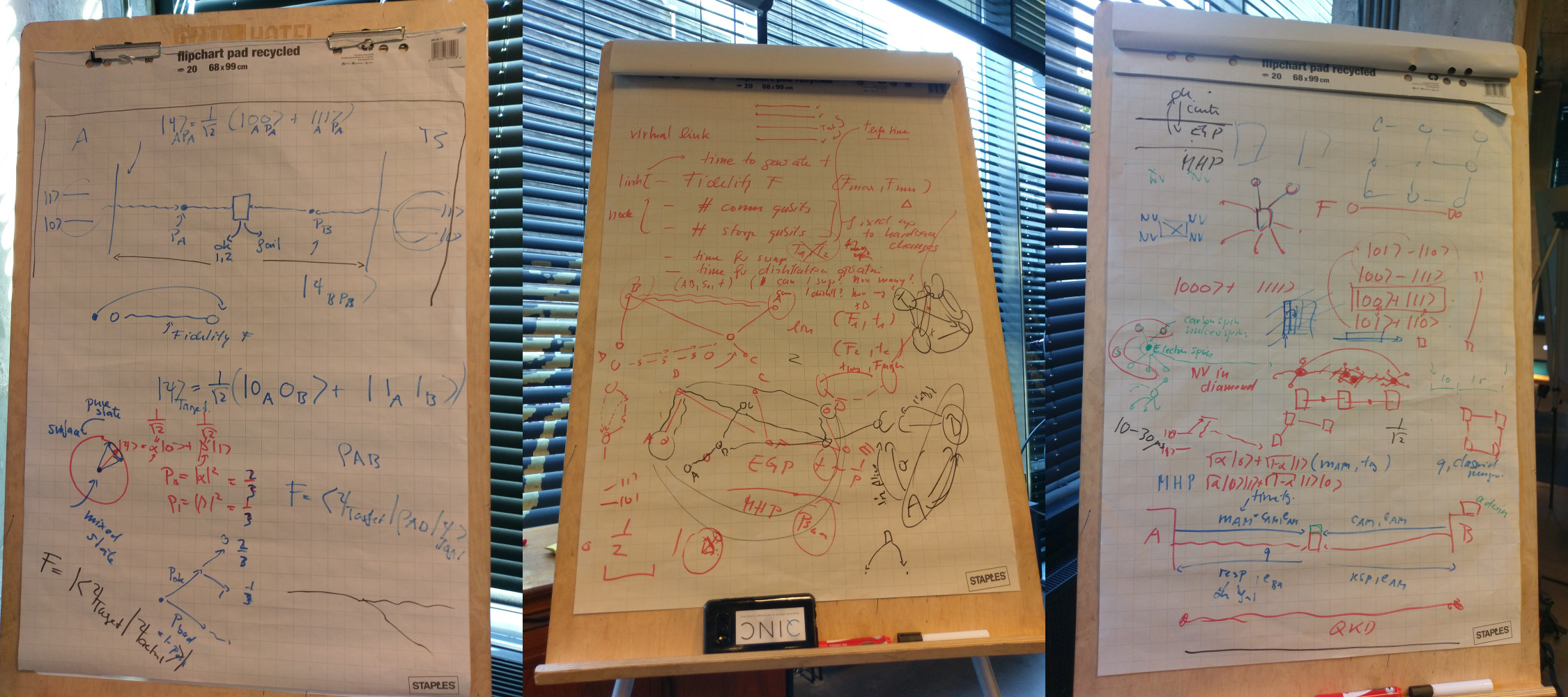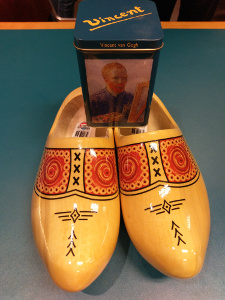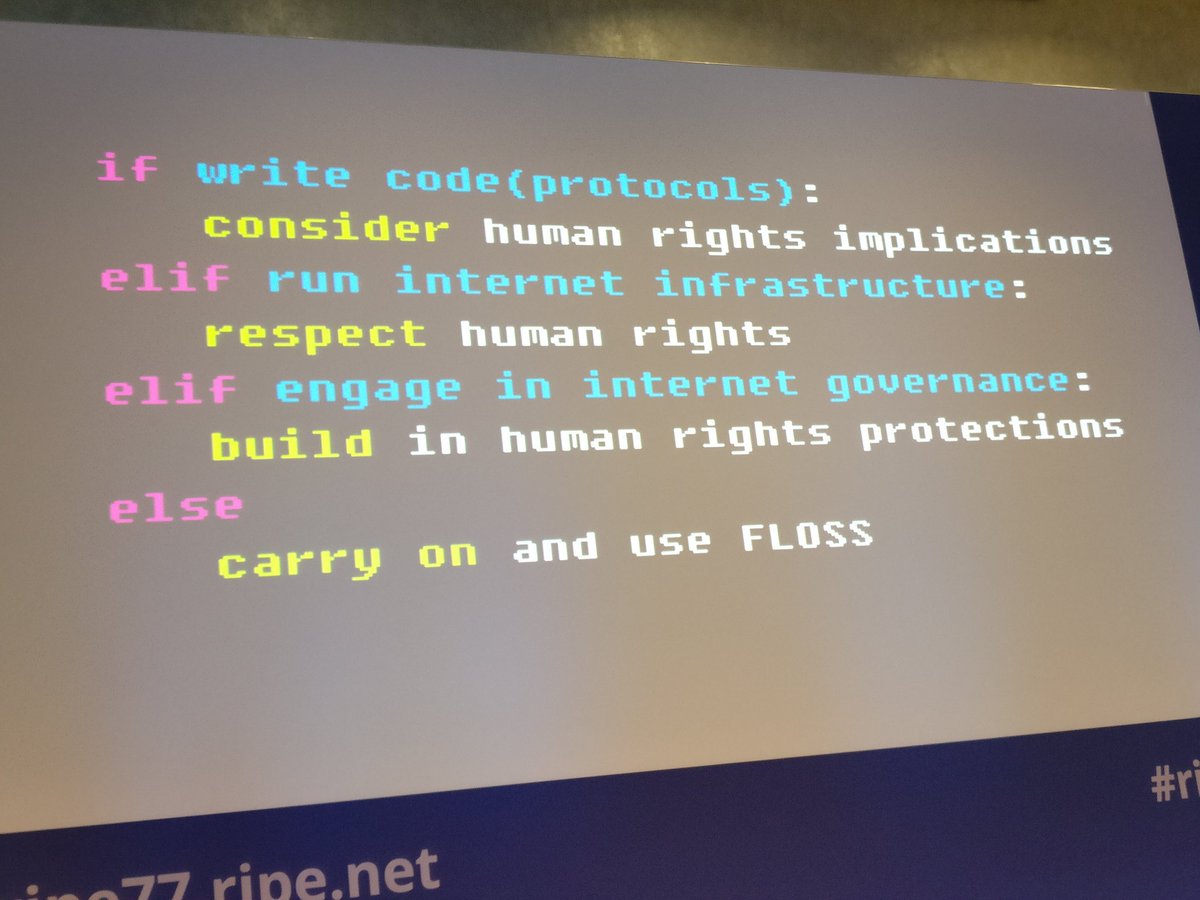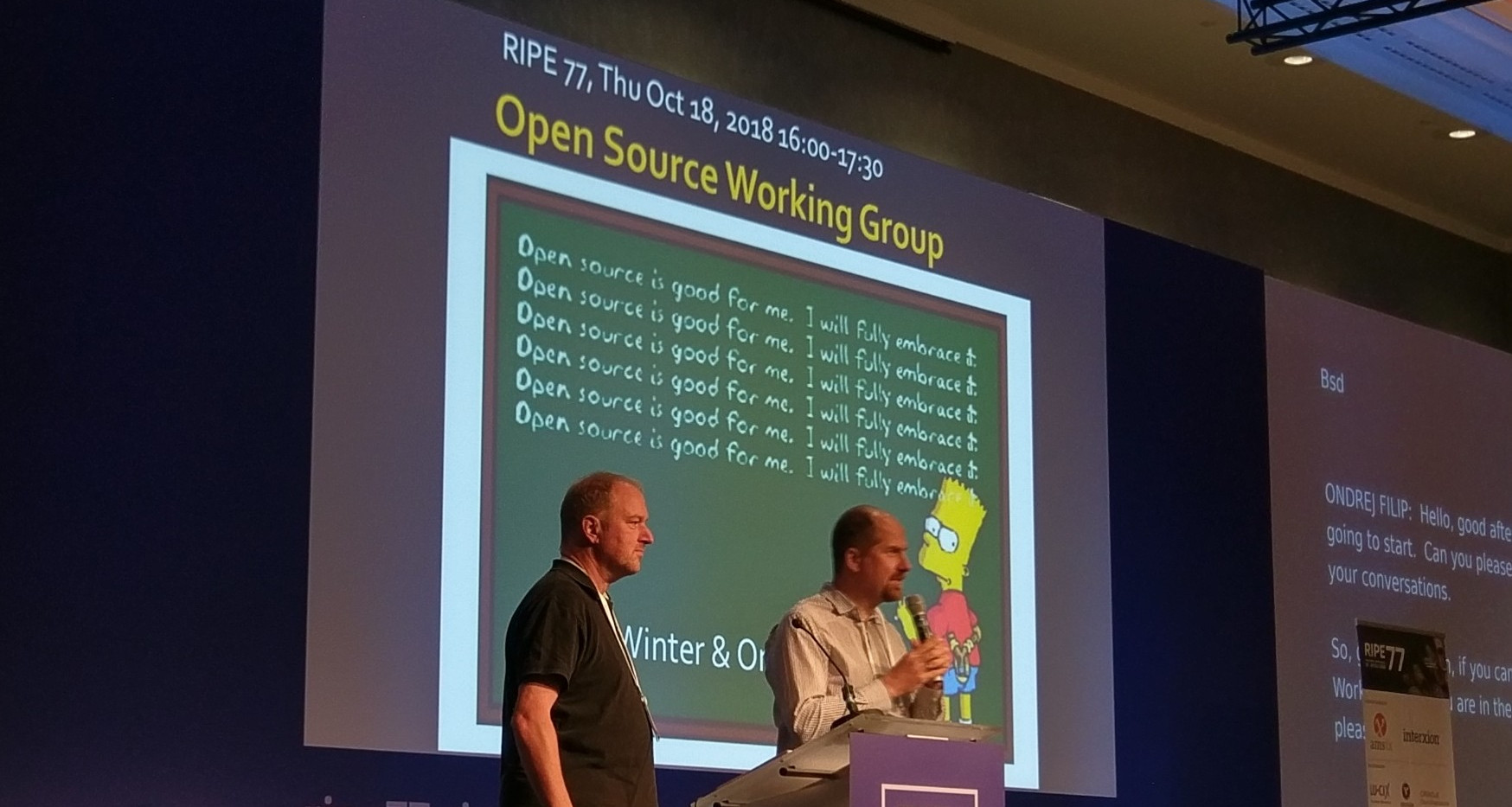The middle of October saw a flurry of fun tech events, all concentrated in the span of a week and half. It all started in Amsterdam with the RIPE+QuTech Quantum Internet Hackathon for a weekend full of... errr uncertainty (at least for me, read on and you'll find out why), leading into five full days of wonderful RIPE77 meeting and culminating with a short trip to Bucharest for the fifth yearly RONOG meeting!
Top up your tea/coffee, turns out I had a lot to write about. To start, Amsterdam and The Weather.
It's never not the right time to complain about the weather (I will be bold and state that's it's one of the few universal truths out there). At RIPE76 we expected warm sunny Mediterranean seaside weather and instead we got wintry temperatures and rain.
In Amsterdam, we expected cool and gloomy mid-October weather, so of course we instead had 25 degrees and blue skies for 5 days straight, prompting everyone to regret not packing shorts and summer attire.
Onwards to the hackathon.
Quantum Internet Hackathon
Quantum what now? That was basically me back when I heard some rumours and then all the way up to the first day of the hackathon. I couldn't miss the opportunity to attend another RIPE hackathon though (Vesna is a wonderful friend and organiser), especially after enjoying the one in Copenhagen so much and organising the one in Dublin together earlier this year (read what attendees wrote).

So, there's a Quantum Internet Alliance and lots of research being done on Quantum Networking on a global scale. Of course, with quantum computing being still in its early stages this is not something you can develop and test in your own back yard. That means simulators are needed for those not fortunate enough to work in super cool research labs (like the one at TU Delft, the home base of the masterminds behind this hackathon, the smart people at QuTech) and the main goal of the hackathon was to improve one such simulator named SimulaQron.
So roll on the first day of the hackathon and the introductions. I quickly realize I'm one of the few (read 3) classical networking people in there, while most others were actually people that worked/researched/studied quantum computing and knew a thing or two about it. So once project ideas were pitched, people formed teams and got to work. I, on the other hand, having no idea what to contribute, managed to find two other similarly lost souls (Kireeti Kompella and Melchior Aelmans) and got talking about an idea that desperately tried to cling to the (apparent) sanity of classical networking while somehow interacting with the quantum world.
We started discussing how to use a classical routing protocol (e.g. OSPF, IS-IS) to advertise the properties of the quantum nodes - the goal being for them to make more informed decisions of how to create new multi-hop quantum entanglement. We knew much about routing protocols and not so much about quantum network nodes, so we very quickly started looking around for assistance. Enter Stephanie Wehner, professor at QuTech & Delft University of Technology, and a most awesome explainer of complicated things.

With Stephanie's help (and many whiteboard drawings), we began to make some sense out of the whole thing. After a whole afternoon of discussions in front of the whiteboard, our brains were thoroughly melted, our inner nerds excited by all the new things they had learned, but there was nothing really to show for it... and the evening progress report/mini-presentation was closer and closer. So Kireeti, being the prolific RFC writer that he is, said "We'll write a draft for the IRTF!" (Internet Research Task Force).
Now that we had a goal, we boldly announced our intentions and got to writing. The next IRTF meeting was only a few weeks later in Bangkok and the deadline to submit a draft to the QIRG (Quantum Internet Research Group) just a week's time.
Long story short, thanks to the hard work of Team AdvEnt, an Internet-Draft has been submitted and presented at the IETF103 meeting and can be found online here and the recording of the presentation is here!
With two out of three judges from the hackathon panel on our team, it was literally impossible not to win a prize (such rampant corruption, down with this sort of thing etc. etc.), so our team was awarded the second prize, then promptly disqualified for cheating, and as a consolation offered some sweets and these super fashionable Dutch shoes, seems they're all the rage nowadays.

My brain is still thoroughly entangled, but I'll tell you this: I had a lot of fun.
RIPE77
You made it halfway, great job! Might as well finish it now, so read on...
Roll on Monday and the start of the week long conference/gathering of friends/Internet geeks/tech & policy lovers that is the biannual RIPE meeting. I was awarded the RIPE fellowship again, for which I am super grateful - it brought me to Amsterdam (where I got to meet old friends, make new ones, learn new techy things, be part of diversity and community building efforts and have an all-round great time) and contributed to my being able to attend the RIPE hackathon as well.
Monday's talks are all in the plenary (after some pre-opening tutorials) and an immediate standout was Sara Dickinson's It's DNS Jim, But Not as We Know It - everybody was talking about it afterwards. The day ended with Lightning Talks (which are a personal favourite in terms of format and duration), and I noticed the necessary (and very well handled) timekeeping. Emile's zombie routes presentation got people discussing and Measuring booter services was interesting and provided some eyebrow raisers... like there being an attack type "OVH" (the hosting provider).
With the evening upon us, it was time to network - I was super happy to see that the Monday evening social was kept open to everyone (after its change at RIPE76) and well stocked with food and drinks. It's a perfect opportunity to get started for the week and warm up that ol' social engine.
Tuesday morning, while queuing for coffee, I noticed a small convenience: a screen next to the coffee queue with a live feed from the main and side rooms. Really nice one from the RIPE NCC team I thought, being able to get coffee and keep an eye on the plenary screen. Turns out its placement was a lucky coincidence, but feedback has been given and happily accepted!
Speaking of presentations, the morning was very much focused on data centre topics, with my friend Henrik Kramshøj showing the results of his poking at VXLAN Security, followed by two informative sessions on EVPN topics, both software and hardware oriented. Two other personal favourites were The Human Factors of Security Misconfigurations - Let's Fix the Weakest Link by Constanze Dietrich and Innovation and Human Rights in the Internet Architecture – Is Self-Regulation Delivering on its Promise? by Niels ten Oever, which had this great slide in it (credit @kramse).

The WIT lunch
The Women-in-Tech lunch is quickly becoming a great tradition at the RIPE meeting and it was just as full as the one at RIPE76 in Marseille. I really liked the panel + audience Q&A format in contrast to the one at RIPE76 which was less interactive and rich in participation. There was a LOT of stuff to discuss of course and it's always a good sign when there are at least 3-4 people willing to speak up at every opportunity - the two main topics were “Quotas – Harmful or Helpful?” and “Male Allies – Why We Need Them, How to Find Them”.
On gender quotas there was a lot of opinion voiced in favour with a few against. I personally have mixed feelings about this, but I will admit I don't know enough about it from practice to lean either way. But what I do know is that there is more to the imbalance than just binary gender - there's race, ethnicity, geography, means, even education. All of these factors for sure do not make things any easier and fundamentally I think we should be in a place where we didn't need any quotas.
There's also the matter of how broken the recruitment system is, with jobspecs taking the spotlight in the discussion this time and for good measure. The main point made was that men will apply even when they only cover half of the required skills while women will typically go for a much higher percentage.
And I can see how that would be very harmful, given what amazing works of fantasy many jobspecs are. Nowadays I can afford to start laughing when I look at a job description that wants every possible skill in the world of IT for any type of position. In the earlier days of my career though, reading such specs was a source of much distress and made it impossible to get past the even more broken filter of first line recruitment companies (who sadly neither understand nor care about these issues).
This is an actionable and fixable problem though, given its distributed nature. Everyone (especially those in more senior technical positions) can start helping out the managers and HR departments be reasonable and word jobspecs so that there's a difference between super-duper essential skills (should be kept to a minimum as many things can be learned) and the nice-to-haves. That there's less superlative language about the job itself (many jobs are not even half as exciting as they're made out to be - and sometimes they don't have to be but that's another discussion) and more honest/transparent description of the responsibilities, the team and the company culture.
And finally, the topic of education came up - gendered stereotypes being introduced to children from a young age are detrimental factors to the size of the available talent pool later on. Availability, accessibility and encouragement of STEM topics from as early as possible is important and has to happen now (the benefits will be seen much later) - and, in particular, my personal issue with network engineering being still largely ignored by higher education.
There was good discussion overall (some comments more polarizing than others) and it was well organized and moderated. Amanda Gowland from the RIPE NCC also presented on the last day about making the RIPE meetings more diverse (including the WIT lunch) and I'm happy this was done in the plenary in front of the whole community.
RIPE77 continues
Did I say half-way earlier? I lied... but look at the scrollbar, so close now!
Tuesday evening we had another NOG (Network Operator Group) organiser BoF (Birds of a Feather) session, the second in a line of many I hope, as it again proved interesting and necessary for those who attended (13+ communities were represented). We discussed for an hour and a half some new ideas and tried to answer questions that some of the organisers had with regards with starting out, finding sponsorship, funding, incorporation and other such topics. Many thanks to Mirjam, Fergal and the NCC for facilitating this BoF and their ongoing support of NOGs!
There was a second BoF session running in parallel (did anyone write a report after?), where the RIPE community did a bit of soul searching, asking itself how its meetings are evolving given the rather sizeable growth it's been experiencing in recent years.
It wouldn't do to forget mentioning the hallway track - it was as strong as ever this time round, as I came to the realization that there are many people in the RIPE community with whom I don't get to chat often enough.
Bonus points go to Denesh for organising (and self-funding) the Pasteis Interest Group - every day during a coffee break - with the sole purpose of meeting new people and helping them meet others too. He rightly pointed out (having been part of the RIPE community for many many years) that it's too easy to just talk to people you know at conferences, filling up all the available time. It's always worth meeting new people from the community and I commend him for finding such a wonderful way of doing it.
Wednesday and Thursday change the rhythm a bit, as the working groups start their sessions, including a BoF about whether there's a need for a new WG (turns out, as with all things, it's best to first identify a problem to solve before coming up with a solution).
The Opensource WG had hands down the best opening slide... and the sessions were many, filled with updates and technical discussions.

Thursday ended with a very beautiful RIPE dinner at a converted cathedral with a huge functional organ (were also treated to a live concert, although I wish people had kept quiet and enjoyed the music rather than keep chatting, showing respect for both the performer and those listening).
Inevitably, we stumble somehow into Friday morning, and it is time to say goodbye at the closing plenary: the report from the Ops team - you rock! - a last set of fun lightning talks, good craic from the wonderful stenographers and that-which-shall-not-be-mentioned-because-it's-secret. For even more detailed day-by-day highlights and choice tweets from the RIPE NCC team look no further than this page.
RONOG5
Saying my goodbyes to Amsterdam after a very busy week, I got on a plane to my home town, Bucharest, as after a few days' rest I was attending (and lending a hand as a member of the Program committee) the fifth annual RONOG meeting.

It's a one-day event, following the traditional format of talks + social breaks and a celebration in the evening after. The venue was great, very roomy, and somewhat familiar (as I attended the RIPE meeting there a few years back). One of the perks of the meeting is that it strives to be accessible to folks from outside of Romania, so they always provide live translation services (via a headset) and the audience is happy to listen to talks given in English as well.
In one of the opening speeches, I really appreciated the frank message towards SPs to stop focusing on and measuring only how many subscribers they have and the growth compared to their competitors (as all other utilities are doing), and keep pushing for interesting technological developments - and I would personally say also improve cooperation within the industry.
There was a good mix of operators, state officials and the press - with interesting questions arising on matters of local interest. One such matter, extensively documented on video here, was raising awareness of the mess that the Netcity project is in Bucharest.
The day ended with a prize draw and a party in the old town, where I was treated (apart from the great food and drinks) to a lot of fantastic stories about the beginnings of the Internet, Richard Stallman, Linux and FOSS.
Wrapping up

If I still have you after this massive wall of text, then fair play to you dear reader, hope you enjoyed reading my stories as much as I did writing them. The next RIPE meeting is in Reykjavík, Iceland next May... and RONOG is likely going to take place autumn time as usual. If you're ever in Dublin come say hi (always happy to meet for a coffee), maybe even attend one of the iNOG meetings and meet our local community!
And, as always, thanks for reading.